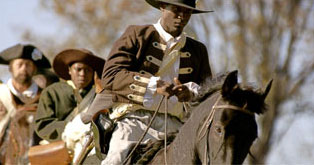RandomAfricanAm's Posts
Nairaland Forum / RandomAfricanAm's Profile / RandomAfricanAm's Posts
(1) (2) (3) (4) (5) (6) (7) (8) ... (12) (13) (14) (15) (16) (17) (18) (of 18 pages)
   |
*Kails*: From a legality stand point I don't see how/why they could stop it From a geopolitical stand point ...well, thats a different story. But I'm up for a battle  I think historically they deserve it and given the rising economy in Brazil it would be nice to see them positioned in society to where they can take max advantage. I understand they know who they are. I'm talking mainly about recording and tracking who they are before and while it changes. Though how they fit into the wider "African World" would be nice also. Example: I didn't even know that there were as many African people in south/central America growing up. I also didn't know how many retentions from Africa caried over to the U.S and carribean. I thought it was stuff people just did, not knowing they get it from/or it was derived from elsewhere. Actualy I'm curious who would staff it.....?? I just feel a school would be the most beneficial thing to do. you could alway go the cheap rout and open businesses and let them work for you but I feel like that would be parasitic. What happens when they close or go out of business? They are back to square one. There is enough money in the diaspora to open a school(one department at a time) Especialy if it's training thats hard to get otherwise(limited seats, etc.) or a great location like Bahia Brazil! I'd love to go to school on the beach :p 1. Open it up one department at a time. 2. Sell it as a school for Afro-Brazilians mainly along with Africa, U.S, Carribean 3. Target it at skills that are hard to get otherwise (Merchant marine) (See: us merchant marine academy http://www.usmma.edu/ ) ***remember one department at a time you can buy a fishing troller/cargo vessel*** ***How much money do we blow on air/boat fair*** |
1 Like |
 |
Will do I have some free time. On a side note: I wish we could do something more for brazil. When you look at history everything has been Africa-> Carribean-> U.S.->(Repeat: maybe add the UK & France at times) If you look at Bahia Brazil they have really been strong "keepers of the culture" do to their isolation from the Government/society. From what I've read they're are really welcoming of other diasporans also. I've read about a good deal of AA going down to open businesses and such so the contacts are on the ground. It would be great to build a university thier for the people. Something along the line of... Merchent marine school: navigation, maritime trade, ship building, Transportation: Trucking, Railway contruction & mantinence Mineing: mineral economics, earth sciences, materials, and environmental science and engineering. Fisheries: fish farms, deep sea fishing, etc Forestries: tree farms, etc. Agriculture: Economics: .... .... A history & culture department would be nice also to document Afro-brazilian & south/central american history & culture. ... ... (Basicaly a school dealing with extraction, distribution, and managing natural resources ***Tired of everyone trying to be a lawyer or a doctor*** Yes, they are desperatly needed but often times I smell self importent "prestige hunters" ) It would be good for Afro brazilians in helping them get their hands into the wider central/south american market. It would also be a school diasporans from central american, Africa, U.S and carribean could find useful cause lets face it.. this knowledge is needed and your not going to get it at Howard.U, etc  (yes I know there are other schools that teach these subjects but Afro-Brazilians can't get into **most** schools given thier isolation) |
*Kails*: To be complete I gotta throw the thanks to the Kongo, igbo, yoruba, hausa, akan, mende, wolof, ect. all the way back to the green sahara. Not so much for the tribalism and/or infighting  But for the stong building blocks ...and not letting the continent turn into a reproduction of the Americas(where the population was largely crowded out or replaced). Though that thanks goes from Cape to Cairo - Morocco to Madagascar; and from Man to Mosquitoe - Gun to Germ  @KidStranglehold: I'm drawing the lines in my head as I type....also notice that this is 1740 which is before Dunmore's Proclamation on November 7, 1775 which points to the british trying to use the revolts for there own gain also shows that the revolts started before Tye and kept going on in the same areas after tye and crew helped open up northern free states hmm.... Now I want to see the british reports to link british campains against revolts in the south along with british issues in jamaica around that time to Dunmores' decision up north.(Gotta look at the bigger picture around this time not just the U.S) 1 Like |
*Kails*:  |
somalia9:  |
 |
heavenly_nzinga:  |
This is director Haile Gerima, I just recently caught on to his work. I've watched a couple of interviews with him and this one really resonated with me as regaurding African people on the contenint and in the diaspora(regardless of nationality, ethnicity, time abroad, etc). In the video he is talking about the need to go into the mind to rewrite the way you see and approtch the world and your self. I feel a cultural section like this board on nairaland helps in that regaurd. He's talking about movies but it's applicable to any field ...or just life in general. https://www.youtube.com/watch?v=X1MQlql9A8I What do you think? |
alanmwene: "How can you account for these facts" Just stopping it before it starts  |
KidStranglehold: 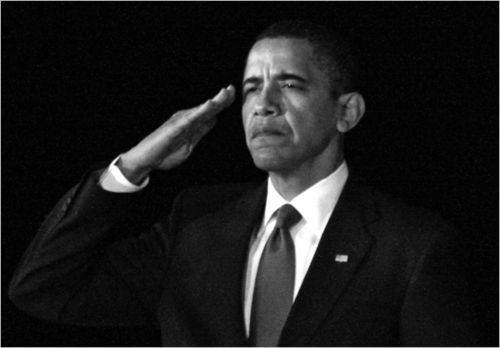 1 Like |
 |
The russian general seemed to be more of an intellectual(...in Paris to study engineering and mathematics at a military school. Two years later, he joined the French army and fought in the war against Spain....) then a fighter though he earned the title of captin durning the war. It's hard to find data on what he did during the war. At a latter point he became a general. The women from the bahammas will take a while because I don't actualy know who she is. I just recall the story and wanted to look it up and share it. The esyest ones whould be the akan and berber queens. Also both senegal and benin offered students a place at thier universities. Haiti - Benin : 110 Haitian scholars will make their studies in Benin 28/12/2010 08:43:41 After Senegal, and its 163 scholars, it was the turn of Benin to open the doors of its universities to 110 young Haitians. Benin had proposed last September to welcome scholarship students in its universities. However, this agreement took time to materialize because of some antecedents in cases of scholarships between the two countries. ...[ Benin and Haitian President Discuss Future Cooperation Posted on April 8, 2013 In mid October, 2012 La Francophonie summit was held in the Democratic Republic of Congo. During the summit, the President of Benin, Boni Yayi, met with the Haitian President Michel Martelly to discuss the possibility of cooperation between the two countries. President Yayi stated that Benin is “with Haiti” and wants to help with the development of the country. The two Presidents are considering a summit in order to lay out the terms of cooperation to help Haiti with development and policy. |
 |
KidStranglehold: Yeah I recall after the earth quake benin offered students a place at the university stating that a lot of Haitians came from what is now called benin. @KidStranglehold -> BTW, did you get the introduction of US freestates post I made? |
 |
 |
alanmwene: Another thing to realize is that the kongo had been fighting with/for europeans for a loooooong time(since cross bows and pikes) prior to leaving the continent. Similar to ethiopia where they had been fighting with the portuguese against the ottomans and somalis so when the italians invaded they were well aware of what the deal was and what they needed to do. |
 |
KidStranglehold: [size=13pt]Colonel Tye(African American)[/size] One more thing about tye(c. 1753–1780), the black brigade, etc, the carribean and the start of free northern states Josef Korbel School Professor, Alan Gilbert, publishes new book; “Black Patriots and Loyalists: Fighting for Emancipation in the War for Independence” [img]http://www.du.edu/korbel/images/news/news_gilbert_bookcover.jpg[/img] According to author Alan Gilbert, in his newly published book; “Black Patriots and Loyalists: Fighting for Emancipation in the War for Independence,” there were two revolutions in America in the mid-1770s, one for Independence whose history is seemingly well-known, the other for emancipation of slaves, long buried on both side of the Atlantic. Alan Gilbert Black Patriots and Loyalists: Fighting for Emancipation in the War for Independence published May 20th [the book is just arriving in stores now] by University of Chicago Press tells the remarkable story of this second revolution to make American freedom the freedom not of the few (male slave-owners, the propertied along with white artisans) but of the many. These two revolutions moved often in opposition, but sometimes in harmony. George Washington relied on black troops, particularly the First Rhode Island Regiment, at Yorktown. Under the command of his aides John Laurens and Alexander Hamilton, black soldiers stormed and took the two crucial British positions and decided the battle. But the dark secret of the American Revolution and the reason that historians, until recently, have ignored the leading role of black soldiers on both sides is the recruitment of escaped slaves by the British and their later leaving for freedom with the British. Starting in 1772, Royal Governor of Virginia Dunmore threatened to free all the slaves and indentured servants of American rebels and raze their mansions to the ground. In 1773, Chief Justice Mansfield in Britain rule that the slave James Somersett was free on British soil. But if slavery was not legal in Britain, how long would it remain legal in the colonies? Poor whites were also often abolitionists. Sailors, black and white, had learned from slave ***uprisings in the Caribbean*** and took the word to London and Boston and Charleston. Quakers had been opposed to slavery since the journeys and conversation of John Woolman in the 1750s. With competition among Protestant sects, their influence spread. In 1775, the New Light Presbyterian minister Samuel Hopkins in Providence denounced bondage as “a sin of crimson dye.” He wisely warned that Patriots must free their slaves now to prevent the British from mobilizing them against the revolution. Around every owner’s table as revolution approach, Patriots denounced American enslavement by the Crown. As the servants cleaned, did they not think: but what about my natural rights? And the measure, as the Quaker David Cooper wrote, was clear enough. Patriots rebelled over arbitrary Royal tax on tea. They spoke of “life, liberty and the pursuit of happiness.” But what is a tax on tea compared to the enslavement (physical and sexual) of a human being for her whole life? As John Adams reported of the South, a long train of information from house slaves to field slaves travelled hundreds of miles. As James Madison said, potential slave insurrection was the “Achilles’ heel” of the American Revolution and that word of uprisings in Virginia and elsewhere, increasing in 1773-74, must be, at all costs suppressed. Samuel Johnson, the famous British essayist quipped: “How come we hear the greatest yelps for liberty from the drivers of slaves?” In South Carolina, Henry Laurens, soon to be the second President of the Continental Congress, helped railroad a free black sea captain, Thomas Jeremiah, for allegedly plotting a slave uprising to greet the British troops sailing in Charleston. Some Patriots and the British Governor worked to free Jeremiah against whom there was no reliable evidence and towards whom the law was misapplied. A Patriot-led “Court” beheaded him and burned his body. Laurens also plotted a mission with the Georgia Council of Safety to massacre maroons – escaped blacks who were not participants in the war at Tybee Island. In Virginia, Patrick henry called for using the militia to present slaves from escaping. His riveting “Give me liberty or give me death!” also meant: give me bondage over others or give me death! Prefiguring the Civil War, this book startlingly reveals, the South seceded from Britain primarily to preserve bondage. The Battle of Great Bridge where Lord Dunmore’s forces, numbering 600, were half black, made up of a newly recruited Royal Ethiopian Regiment, was an early Patriot victory. But one hears in history texts of the midnight ride of Paul Revere, and not of battles in the South which previously have been “whited out.” Fortunately, George Washington was more a statesman than a slave owner. In answer to the British, he allowed Rhode Island in 1778 to recruit an all-black and Narragansett indian regiment. They fought throughout the war – most mainly white militias served only for 10 months – and had become, by Yorktown, the most disciplined and determined American fighters. John Laurens, the son of Henry, had studied in Switzerland, learned from Rousseau that the two words slavery and right can never go together, and led the fight in the American leadership for abolition. In 1779, the Continental Congress passed a resolution calling for the freeing of 5,000 slaves in South Carolina and Georgia in exchange for soldiering. Unlike the Crown which freed slaves simply opportunistically, Gilbert shows, these forces fought to make the American revolution consistently for freedom. Georg Daniel Flohr, a German private with a French unit allied to the Patriots, walked around the field at Yorktown. In his diary, he reported that most of the corpses on both sides were “Mohren” (Moors). Until this book, this has been one of the most deeply kept secrets of the American Revolution. The military competition to free and recruit slaves nearly resulted in gradual emancipation in the American Revolution. As Gilbert shows, other independence movements of black and brown people in the Hemisphere, long neglected in the comparative study of revolutions, resulted at least in gradual emancipation. They did in the North, too. Why slavery survived the American revolution in the South, is, as Black Patriots and Loyalists shows, something of a mystery. What happened during the Revolutionary war to cause free states? The Revolution was a remarkable saga in African-American history. This huge conflict offered an opportunity for vast numbers of slaves to fight, and many did, on both sides, in the hope of earning their freedom.[44] It has been suggested that two revolutions went on at once—the Patriot one against the British, and a second one fought by blacks for their freedom.[45] Throughout the war, the British repeatedly offered freedom to those slaves who would join their side. This was the first large-scale opportunity in American history for slaves to escape from their bondage. One historian has said, "Thousands of blacks fought with the British."[46] The white Tories were fighting out of loyalty to Great Britain, or out of an attachment to the British Crown, emotions which modern Americans cannot understand. The ex-slaves who joined the British cause were fighting for the most fundamental of American values—freedom—and they were fighting for it in a basic sense which no white Patriot could ever have equaled. The historical neglect of the black Tories may not come entirely from the fact that they were not on the Patriot side. It may stem as well from the uncomfortable fact that, as an American historian has said regarding the Revolution, "... more often than otherwise, it is the British who are in the right and the Patriots who are in the wrong on the issue of [black] civil rights."[47] The story began when Lord Dunmore, the former royal governor of Virginia, on November 7, 1775, proclaimed freedom for all slaves (or indentured servants) belonging to Patriots, if they were able and willing to bear arms, and joined the British forces. One historian has said, "The proclamation had a profound effect on the war, transforming countless slaveholders into Rebels and drawing thousands of slaves to the Loyalist side."[48] Within a month of the proclamation, more than five hundred slaves left their masters and became Tories. The Ethiopian Regiment was raised, and put on uniforms with "Liberty to Slaves" across the chest. British regulars, white Tories and the Ethiopian Regiment attacked Great Bridge, near Norfolk, Virginia. The attack failed, and thirty-two captured blacks were sold by their captors back into slavery.[49] Some of the Ethiopian Regiment escaped with Dunmore to New York shortly after the city was captured by the British in 1776. There the regiment was disbanded, but some of its men joined the Black Pioneers. This unit had been formed by the British general Henry Clinton, in North Carolina, from slaves responding to Dunmore's proclamation. (A pioneer in the British Army was a soldier who built bridges and fortifications.)[50] [b]In August 1775, South Carolina Patriots executed Thomas Jeremiah for treason. Jeremiah was a freed black man allegedly sympathetic to the British. Within three months of his death, five hundred blacks, a tenth of the black population of Charleston, had escaped to join the British forces, and both black and white Tories were raiding Patriot plantations.[51] At the end of 1775, the British officer Captain William Dalrymple proposed that blacks be used as "irregulars"—that is, for what we now call guerilla warfare.[52] As the war ground on, an increasing number of blacks did indeed fight as Tory irregulars, or with the regular British forces. There can be no doubt that a yearning for freedom was their motivation. Estimates of the number of slaves who escaped to the British range from twenty thousand to one hundred thousand.[53] Thomas Jefferson estimated that thirty thousand slaves fled their masters just during the brief British invasion of Virginia in 1781.[54] Recent studies show that black soldiers fought in the British forces in large numbers, and one historian has said, that "... black soldiers were the secret of the imperial [British] army in North America."[55] In Massachusetts, the British organized both all-black and multi-racial units. In 1779, Emmerich's Chasseurs, a Tory unit in New York, included blacks who raided the Patriots. There were black soldiers in De Lancey's Brigade in Savannah. There were blacks in the Royal Artillery units in Savannah, and black dragoons (cavalry). There were also large numbers of black pioneers and other non-combatant troops. At one point, ten per cent of the British forces at Savannah were black. There were substantial numbers of black soldiers in the British forces at Charleston, and analyses of British records show that blacks were represented in British units in Rhode Island at about the same time (1779).[56] One of the most famous black Tories was an escaped slave named Tye. This charismatic young man escaped in 1775 from his master in New Jersey, at that time a colony where slavery was legal. In Virginia, Colonel Tye joined Dunmore's regiment. After the regiment was disbanded, Colonel Tye fought on the British side in the battle of Monmouth. He then founded a unit which the British called the Black Brigade. The Brigade relentlessly raided Patriot homes and farms in New Jersey, gathered intelligence for the British, kidnapped Patriot leaders, and gathered firewood and provisions for the British Army. Colonel Tye's men became a scourge to the Patriots. They were headquartered in a timber-built fortress at Bull's Ferry, New Jersey. George Washington was so angered by Tye's raids that he sent a thousand troops against the fortress. A force of black and white Tories fought them off after a bloody assault, and the raids went on. Colonel Tye finally died after being wounded in an assault by his men on the home of Joshua Huddy, the Patriot later hanged by William Franklin's Associated Loyalists.[57] In addition, from at least 1776 through 1779, other black Tories were heavily involved in raids against Patriot forces in New Jersey.[58][/b] An American historian has said about the war in the South, condescendingly, "The more intelligent and articulate [sic] of the freed slaves were quite frequently used by the British as guides in raiding parties or assigned to the commissary…"[59] (to help round up provisions). Eliza Wilkinson, daughter of slave-holding Patriots, recorded a Tory raid of which she predictably thought one of the most terrible features was the presence of "armed Negroes".[60] Battalions of blacks fought in the successful defense of Savannah against a French and Patriot siege at the end of 1779. One British observer wrote, "Our armed Negroes [were] skirmishing with the rebels the whole afternoon", and, later, "... the armed Negroes brought in two Rebel Dragoons and eight Horses, and killed two Rebels who were in a foraging party."[61] When Lord Cornwallis invaded Virginia in 1781, twenty-three of Jefferson's slaves escaped and joined the British forces.[62] It was said that two or three thousand black Tories were with Cornwallis in the Carolinas.[63] This may have included men and their wives and children, following in the wake of an army which could protect them from their former oppressors........] Leading to the northern free states (connecting the dots) Background The Northeastern and Mid-Atlantic States (colonies), including Massachusetts, New York, Pennsylvania, and New Jersey, had legally permitted slavery in the 17th, 18th, and even part of the 19th centuries, but in the generation or two before the American Civil War, almost all slaves in such states had been emancipated through a series of statutes. The first U.S. region by federal law that prohibited slavery was the Northwest Territory, which was ordained free under the Northwest Ordinance of 1787, passed just before the U.S. Constitution was ratified. The states created from this region—Ohio, Indiana, Michigan, Illinois, Wisconsin, and Minnesota —were generally settled by ****New Englanders and American Revolutionary War veterans**** granted land there. Because in this region slavery was prohibited from its inception and separated by the Ohio River from the South—which was pushing an expansion of legal slavery into the west—the concept developed of "free states" in contrast to "slave states." The rural parts of these states, at one time in direct East-West rivalry with the Northeastern commercial states, realigned with the Northeastern states, which were newly free of slavery, and together these regions created the amalgamation of states prohibiting slavery, known in the context of the Civil War as the free states. Anti-slavery settlers in "Bleeding Kansas" in the 1850s were called Free-Soilers, because they fought (successfully) to include Kansas in the Union as a free state. Original state-based abolition efforts Prior to the American Revolution, all of the British North American colonies had slavery, but the Revolutionary War gave impetus to a general anti-slavery sentiment. The Northwest Territory, now known as part of the Midwest, was organized under the Northwest Ordinance with a prohibition on slavery in 1787. Massachusetts accepted that its 1780 Constitution effectively abolished slavery, and several other northern states adopted statutes requiring gradual emancipation. In 1804, New Jersey became the last original state to embark on the course of gradual emancipation. Conflict over new territories During the War of 1812, the British accepted as free all slaves who came into their hands, with no conditions as to military service such as had been made in Dunmore's Proclamation in the Revolutionary War. By the end of the War of 1812, the momentum for antislavery reform, state by state, appeared to run out of steam, with half of the states having already abolished slavery (Northeast), prohibited from the start (Midwest) or committed to eliminating slavery, and half committed to continuing the institution indefinitely (South). The potential for political conflict over slavery at a federal level made politicians concerned about the balance of power in the U.S. Senate, where each State was represented by two Senators. With an equal number of slave states and free states, the United States Senate was equally divided. As the population of the free states began to outstrip the population of the slave states, leading to control of the House of Representatives by free states, the Senate became the preoccupation of slave state politicians interested in maintaining a Congressional veto over federal policy in regard to slavery. As a result of this preoccupation, slave states and free states were often admitted into the Union in pairs to maintain the existing Senate balance between slave and free. [img]http://2.bp..com/-rqrdDBdn1Hs/T0t6k-uw9XI/AAAAAAAAD48/gt6CJvo1a6c/s1600/Missouri+Compromise.png[/img] Those free northern states opened the door for the activities of who? (connecting the dots) 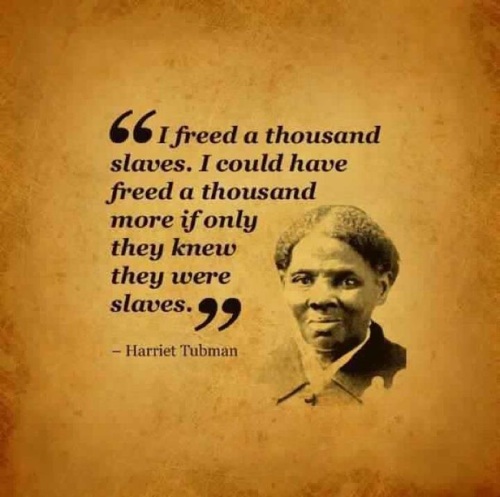 Harriet Tubman (1820 – March 10, 1913) All those re-captured experienced soldiers in virginia, carolinas, and georgia provided knowledge and/or troops for who & what? 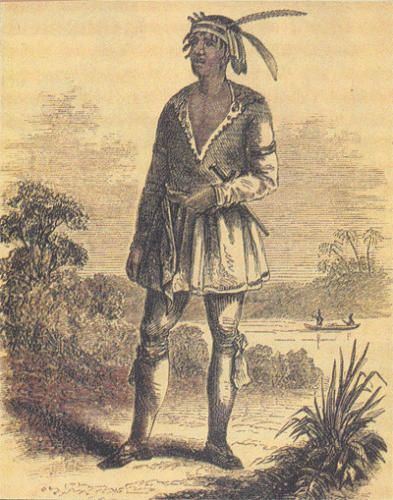 John Horse (ca. 1812–1882) https://www.youtube.com/watch?v=dsi8R_d3hzQ Check the dates and events its all one big continuation from Colonel Tye(c. 1753–1780) to John Horse (ca. 1812–1882) with little pause inbetween 2 Likes |
ryom: Is this to scale?  |
 am asking a serious question. Why are you posting a thread about somalis, when your not one? [img]http://www.troll.me/images/admiral-ackbar-relationship-expert/dont-take-the-bait-its-a-trap.jpg[/img] 2 Likes |
CAMEROONPRIDE: Either way the word brain washed immediately springs to mind... |
Data dump on tye(if you add it to your post I can delete this) Colonel Tye, the most feared and respected guerrilla commander of the Revolution, was one of the many enslaved Africans who escaped and fought for the British. Known in his youth as Titus, he was one of four young men owned by John Corlies of Shrewsbury, in the eastern part of Monmouth County, New Jersey. Shrewsbury Quakers, under increasing pressure from their Philadelphia-influenced counterparts to the west, finally began to end slavery among themselves in the 1760s. Corlies did not follow the local practice of educating his slaves or of freeing them on their 21st birthdays, and by 1775, he was one of the few remaining Quaker slaveholders in Monmouth County. In November 1775, the day after Dunmore's Proclamation was issued, 22-year old Titus fled from his cruel, quick-tempered master, joining the flood of Monmouth County blacks who sought refuge with the British as soldiers, sailors and workers. Titus changed his name, gaining notoriety three years later as Captain Tye, the pride of Dunmore's Ethiopian Regiment. While not formally commissioning black officers, the British army often bestowed titles out of respect, and Tye quickly earned their respect. In his first known military incursion, the June, 1778 Battle of Monmouth (in which not a single black from the county fought for the patriots), Tye captured a captain in the Monmouth militia. In July, 1779, Tye's band launched a raid on Shrewsbury, and carried away clothing, furniture, horses, cattle, and two of the town's inhabitants. With his "motley crew" of blacks and white refugees known as "cow-boys," Tye continued to attack and plunder patriot homes, using his knowledge of Monmouth County's swamps, rivers and inlets to strike suddenly and disappear quickly. These raids, often aimed at former masters and their friends, were a combination of banditry, reprisal, and commission; Tye and his men were well-paid by the British, sometimes earning five gold guineas. During the harsh winter of 1779, Tye was among an elite group of twenty-four black Loyalists, known as the Black Brigade, who joined with the Queen's Rangers, a British guerrilla unit, to protect New York City and to conduct raids for food and fuel. By 1780, Colonel Tye had become an important military force. Within one week in June, he led three actions in Monmouth County. On June 9, Tye and his men murdered Joseph Murray, hated by the Loyalists for his summary execution of captured Tories under a local vigilante law. On June 12, while the British attacked Washington's dwindling troops, Tye and his band launched a daring attack on the home of Barnes Smock, capturing the militia leader and twelve of his men, destroying their cannon, depriving Washington of needed reinforcements, and striking fear into the hearts of local patriots. In response, Governor Livingston, who had tried two years before to abolish slavery in New Jersey, invoked martial law -- a measure which proved totally ineffective -- even as large numbers of blacks, heartened by news of Tye's feats, fled to British-held New York. In a series of raids throughout the summer, Tye continued to debilitate and demoralize the patriot forces. In a single day, he and his band captured eight militiamen (including the second in command), plundered their homes, and took them to imprisonment in New York, virtually undetected and without suffering a single casualty. In September, 1780 Tye led a surprise attack on the home of Captain Josiah Huddy, whom Loyalists had tried to capture for years. Amazingly, Huddy and his friend Lucretia Emmons managed to hold off their attackers for two hours, until the Loyalists flushed them out by setting the house afire. During the battle, Tye was shot in the wrist, and days later, what was thought to be minor wound turned fatal when lockjaw set in. After Tye's death, Colonel Stephen Blucke of the Black Pioneers replaced him as leader of the raiders, continuing their attacks well after the British defeat at Yorktown. Tye's reputation lived on, among his comrades as well as the Patriots, who argued that the war would have been won much sooner had Tye been enlisted on their side. Dunmore's Proclamation  Q: Can you describe for me Colonel Tye? Who was he, and what was his significance during the American Revolution? A: Probably one of the most colorful individuals during the American Revolution was a black man named Colonel Tye, an enslaved man in Monmouth Country, New Jersey, enslaved by Quakers who disobeyed the general Quaker ruling that Quakers put their enslaved people on the road to emancipation. So even though some Quaker-owned slaves were getting their freedom, Tye wasn't. And he had a especially cruel master. When the American Revolution emerged, Tye emerged as a fearless leader. He was only about 21, and he commanded both black and white Loyalists, and literally wreaked havoc in New Jersey and also in New York. He captured patriots. He executed patriots. He visited the region of Monmouth, where he was from, and burned and looted the slaveholders, freed slaves. He probably had probably 800 men under his command at one point, both black and white. And he would capture people, if he didn't want to execute them, send them to what was called the Sugar House in New York City, and then go on his guerrilla raids. He was probably more feared in that region than any other British loyalist, black or white. The kind of guerrilla warfare that he engaged in kept the country in turmoil. So he was very important in terms of the morale of African Americans, because many of them joined him. Others who didn't join him certainly got a big charge out of the fact that here was this black man who was leading these raids against the patriots, freeing slaves. And it gave them a sense of their own capacity. And they began to flee the farms and to move into the British, those who didn't join Tye, and also to fight in little guerrilla skirmishes themselves. So he was really largely responsible for the war effort in a non-orderly way, but in a sort of a guerrilla way, in the New Jersey countryside. A very important individual who remained on the scene, beginning in 1778, all the way up through 1780. Margaret Washington Associate Professor of History Cornell Universiy Titus was one of four young black men owned by John Corlies of Shrewsbury, in the eastern part of Monmouth County, New Jersey. In November 1775, the day after Dunmore's Proclamation was issued, 22-year old Titus fled from his cruel, quick-tempered master, joining the flood of blacks who sought refuge with the British as soldiers, sailors and workers. In this ad for Titus's capture and return, dated November 22, 1775, Corlies correctly anticipated that Titus "will probably change his name." Three years later the former slave gained notoriety as Captain Tye, the pride of Dunmore's Ethiopian Regiment, who led a guerrilla campaign against Monmouth County slaveholders. Runaway ad for Titus  THREE POUNDS Reward. There is more but thats where I got before I saw you alredy added him 1 Like |
KidStranglehold: RandomAfricamAm...I see you viewing this thread. Can you contribute some more? I enjoy reading your posts!. Well you beat me to "Queen Amina" and "Colonel Tye" so... haha I try to think of people most don't know anything/much about(And round up a good deal of info). I have 2 other queens(berber & akan), A woman from the bahammas, and a russian general in mind right now since the two above are knocked out. Though I might have a little more on tye. That said I suggest you go ahead and put up the siddi(you already have the info from a previous post) I'm trying to find the info on the carribean women who set fire in the feilds during a revolt afterwards going to military school in europe Also the men that haiti sent with bolivar back into south/central america to liberate the people from the spainish 1 Like |
Apparently very!! 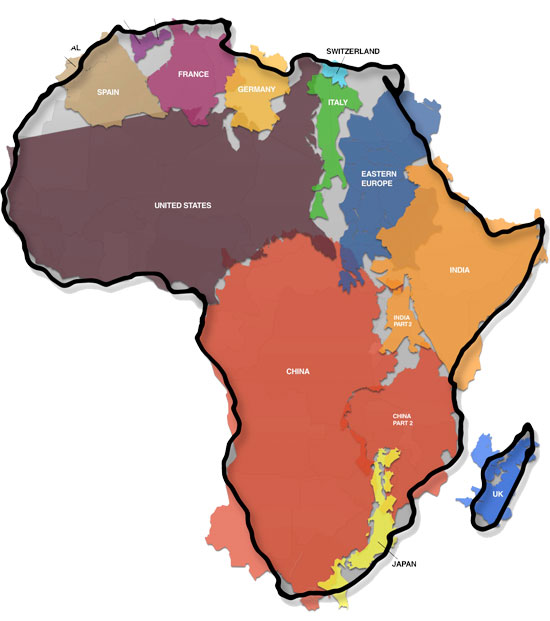 |
**this entire thread**. Clicks "Un-follow" 1 Like |
(1) (2) (3) (4) (5) (6) (7) (8) ... (12) (13) (14) (15) (16) (17) (18) (of 18 pages)
(Go Up)
| Sections: politics (1) business autos (1) jobs (1) career education (1) romance computers phones travel sports fashion health religion celebs tv-movies music-radio literature webmasters programming techmarket Links: (1) (2) (3) (4) (5) (6) (7) (8) (9) (10) Nairaland - Copyright © 2005 - 2024 Oluwaseun Osewa. All rights reserved. See How To Advertise. 132 |



